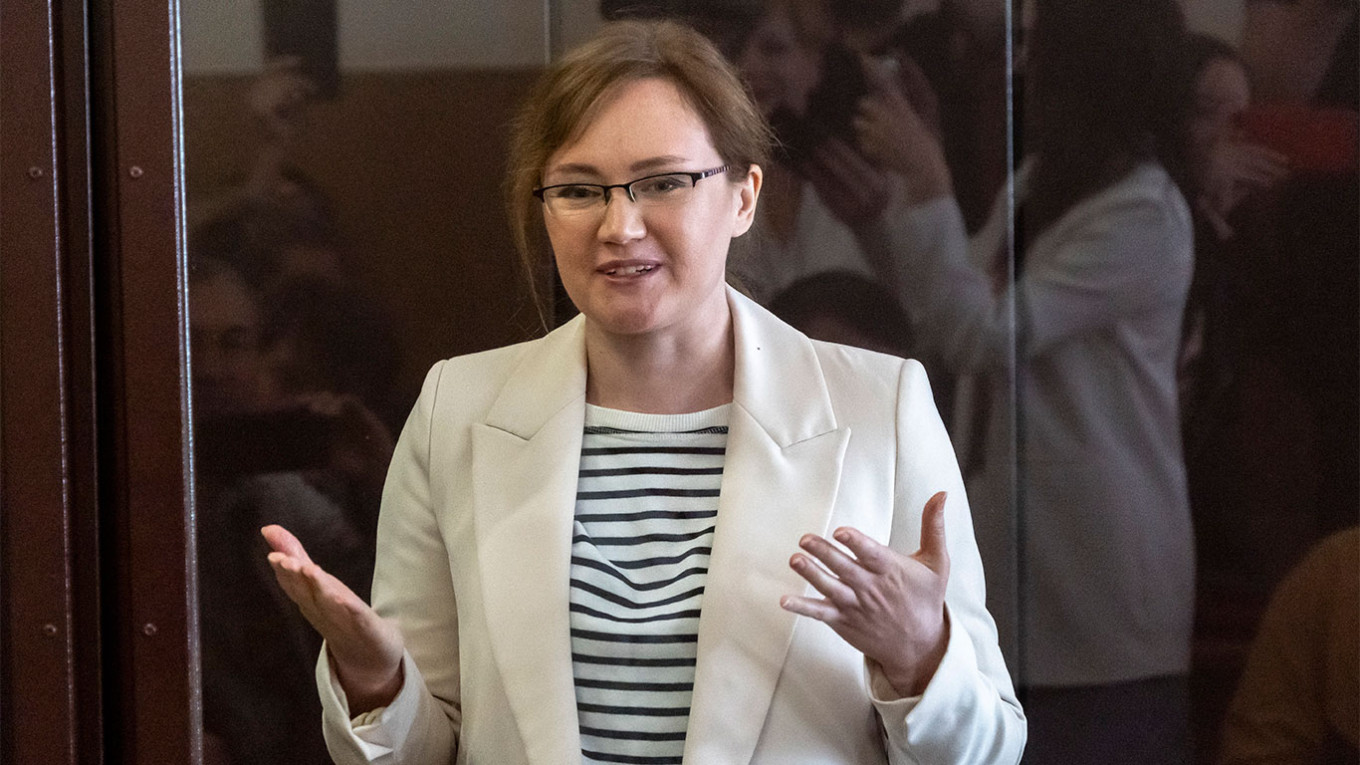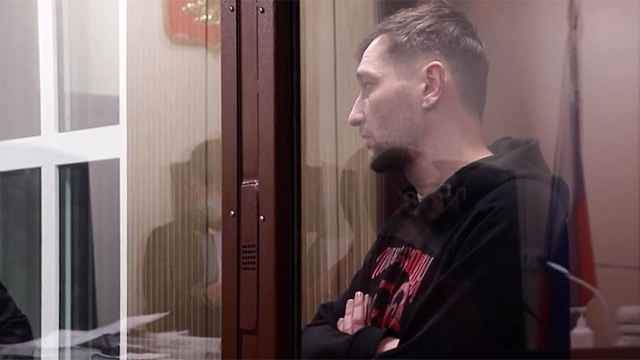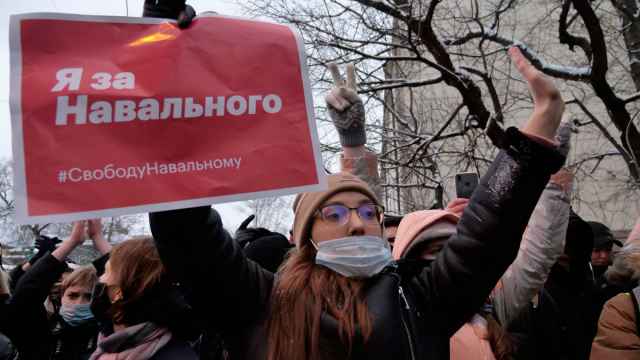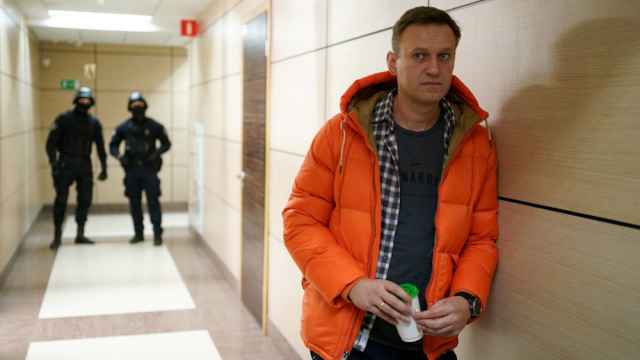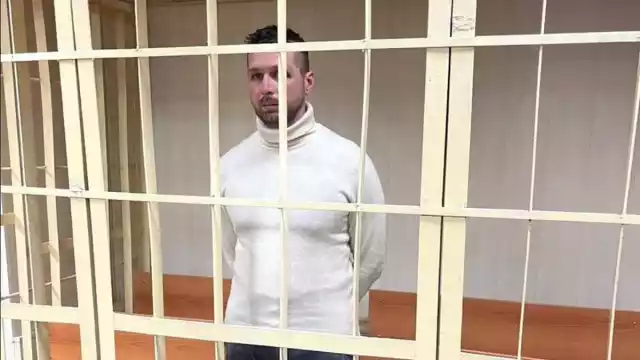Although jailed activist and politician Lilia Chanysheva had virtually no hope of changing her sentence in an appeal originally scheduled for Monday, she told The Moscow Times she still intends to fight back.
Chanysheva was the first associate of jailed opposition figure Alexei Navalny to be sentenced after Navalny's networks were labeled “extremist” and forced to dissolve in 2021.
She was sentenced in June to 7.5 years in a penal colony for creating an “extremist organization.”
Before her 2021 arrest, Chanysheva headed Navalny's local office in the republic of Bashkortostan, where she led local anti-corruption protests and investigations that revealed alleged corruption by region head Radiy Khabirov and others.
Chanysheva and Navalny’s team deny her guilt, saying she was imprisoned in retaliation for her political activities.
“I filed the appeal to show that I do not agree with the verdict and do not admit my guilt,” Chanysheva told The Moscow Times in a letter from prison delivered by her lawyer. "I don't have hope that the sentence will be commuted or canceled because this is a political matter.”
“But I still believe that in the future my sentence will be overturned and that I will be rehabilitated,” she said.
The Supreme Court of Ufa, the capital of Bashkortostan, on Monday postponed her appeal hearing, which had been scheduled for that day, to Nov. 7.
Last year the European Union called on Russia’s authorities to free Chanysheva. Human Rights Watch mentioned her criminal case in its 2022 report on the eradication of public dissent in the country. Memorial, one of Russia’s oldest rights groups, has recognized Chanysheva as a political prisoner.
Today, Chanysheva says she “finds solace in my awareness of my innocence.”
“My husband helps me to maintain my fortitude,” she said, “as well as the support I receive from compassionate citizens not only in Russia but from around the world.” She added that she receives dozens of letters in jail every month.
Besides sending and reading letters, Chanysheva said she keeps herself busy by reading books and newspapers and continuing her activism from behind bars.
“I organized the collection of over 600 books for a pre-trial detention center in Ufa and initiated separate waste collection in a Moscow pre-trial detention center," she said.
For Chanysheva, 41, one of the most devastating aspects of her arrest has been the shattering of her long-cherished dream to have a child with her husband, she said, as well as a separation from her family — she is allowed to have visits with loved ones twice a month.
Describing her conditions in jail, Chanysheva said she has “the basic necessities for living in a woman's cell,” including a refrigerator and a TV.
“The room is not damp, but still cool, since the heating has not yet been turned on and hot water can hardly be called hot, but at least it is not cold,” she said.
She added that she was being held alone in a four-bed cell with almost no opportunity to speak to other prisoners.
Last week, prison authorities transferred her to a different pre-trial detention center in Bashkortostan without notifying her lawyers, who said that this complicated their preparations for the appeal.
Chanysheva’s situation is not unique.
According to Chanysheva, "the current political situation in Russia is such that anyone who openly opposes the government is in prison, under criminal prosecution, or forced into exile.”
“The authorities intimidated the rest with the mobilization and introduced new repressive laws, effectively implementing military censorship, which has created a grim atmosphere within the country,” Chanysheva said.
The present political climate in the country “becomes a one-man show for Putin,” who “repeats the same messages, creating an illusion of energetic activity and enhancing his sense of self-importance while real people are suffering and dying.”
Yet Chanysheva has not yet lost hope for the country's future.
“There is also good news — many politicians, activists and journalists who left the country continue their work for the benefit of Russia,” she said.
“There are also many who have not gone anywhere — lawyers, volunteers, philanthropists — who help political prisoners and continue to resist the dictatorship,” Chanysheva said.
“For now we are like water that wears away a stone drop by drop, but soon we will turn into a stream.”
A Message from The Moscow Times:
Dear readers,
We are facing unprecedented challenges. Russia's Prosecutor General's Office has designated The Moscow Times as an "undesirable" organization, criminalizing our work and putting our staff at risk of prosecution. This follows our earlier unjust labeling as a "foreign agent."
These actions are direct attempts to silence independent journalism in Russia. The authorities claim our work "discredits the decisions of the Russian leadership." We see things differently: we strive to provide accurate, unbiased reporting on Russia.
We, the journalists of The Moscow Times, refuse to be silenced. But to continue our work, we need your help.
Your support, no matter how small, makes a world of difference. If you can, please support us monthly starting from just $2. It's quick to set up, and every contribution makes a significant impact.
By supporting The Moscow Times, you're defending open, independent journalism in the face of repression. Thank you for standing with us.
Remind me later.



